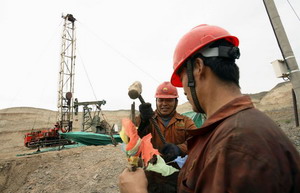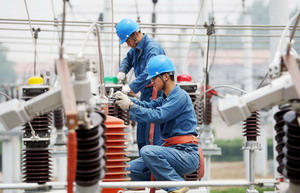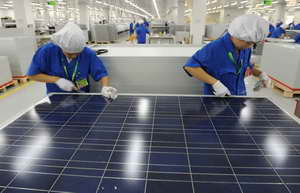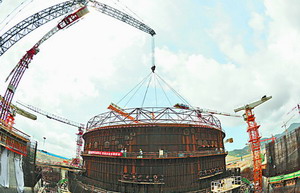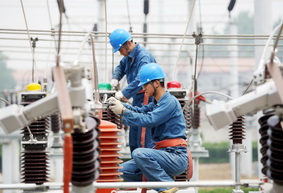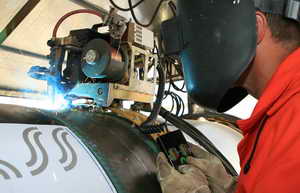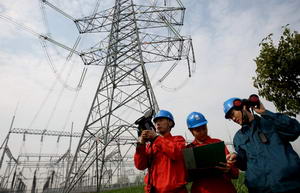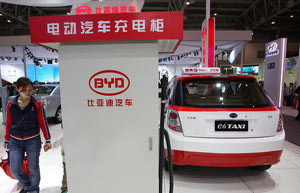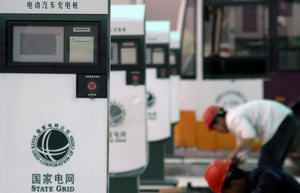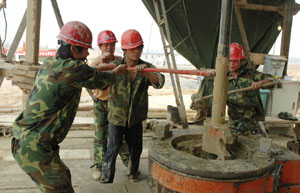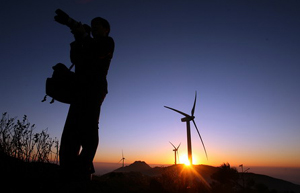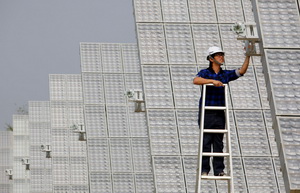Hydropower to get shot in arm
[2010-08-27 10:32]China will boost its installed hydropower capacity by 90 percent to 380 million kW by 2020 in an effort to meet the nation's pledge at last year's Copenhagen climate conference to generate 15 percent of its power from non-fossil sources by the end of the decade, said a top energy official.
PetroChina bets big on region
[2010-08-17 09:56]PetroChina Co Ltd will open its pipelines to meet demand from the oil industry's downstream businesses in Xinjiang Uygur autonomous region, the first of a series of moves designed to help develop the northwestern region's petrochemical industry.
Meeting in the green
[2010-08-14 15:17]One major hotel in Beijing has created a program that will reduce the hotel's carbon emissions while also benefiting the community.
China scraps power sops for heavy users
[2010-08-07 09:10]China has canceled all preferential power tariffs for energy-intensive industries directed by local governments in 22 provinces as of July 14, to curb expansion in energy-guzzling and polluting industries, the National Development and Reform Commission (NDRC) said on Friday.
Chint Group to invest in Gansu solar power projects
[2010-08-05 10:09]Power equipment manufacturer Chint Group Corp said it will invest 22 billion yuan ($3.25 billion) to build two solar power projects in Gansu province to expand its portfolio in new energy sectors.
Nuclear power firms move into top gear
[2010-08-04 13:37]Global equipment makers are rushing to corner a slice of the fast growing nuclear power sector in China and the resultant opportunities in what analysts estimate to be a market in excess of 1 trillion yuan ($148 billion).
Smart power grid norms unveiled
[2010-06-30 10:00]State Grid Corporation of China released standards for the smart grid industry on Tuesday aimed at unifying the fledging industry and maintaining its edge in the booming market.
China agrees new gas pipeline
[2010-06-14 10:15]China and Kazakhstan have signed a deal to build and finance a natural gas pipeline and deepen their cooperation on nuclear energy, extending the two countries' ties on resources.
Smart grid project generates local buzz
[2010-06-10 10:45]While foreign conglomerates like General Electric (GE) and IBM are ramping up initiatives in one of the world's largest smart-grid markets, Chinese companies are also competing to get a piece of the action.
Sinopec to boost refining capacity
[2010-06-09 09:38]China's largest refiner Sinopec Group is expected to process 10 percent more crude this year compared with 2009, in order to meet rising domestic demand, a company official said on Tuesday.
Green car subsidy trials start in five pilot areas
[2010-06-03 09:44]The government has rolled out the long-awaited incentive program for fuel-efficient vehicles on a trial basis in five cities.
Electric car recharging station opens in E China
[2010-06-02 17:32]Workers adjust rechargers at an electric car recharging station on June 1 in Wuhu in Anhui province. The recharging station, which opened on June 1, is 4,800 square meters in size. It is equipped with 10 alternating current rechargers and 10 direct current rechargers.
Sinopec to boost unconventional gas production capacity by 2015
[2010-06-02 10:25]Sinopec Group (Sinopec), the country's second-largest oil company, plans to increase its unconventional gas production capacity to more than 2.5 billion cubic meters annually by the end of 2015, a move in line with China's efforts to diversify its energy mix.
Electric taxis take to the streets of Shenzhen
[2010-05-22 09:21]Earlier this month when the first batch of electric taxis appeared in Shenzhen, South China's Guangdong province, locals dismissed the red-and-white cars as "fire engines" and didn't even think of taking one.
China makes rapid new energy strides
[2010-05-07 09:01]China will take radical measures to increase the use of new energy in the 12th Five Year Plan (2011-15), a move that reinforces the nation's commitment to improve the energy mix and reduce pollution.
Capital can lead green revolution
[2010-04-07 08:00]While the capital's per-capita GDP falls short of world city levels, Beijing has the potential to become a global leader in the "low-carbon" concept, experts said.
China's shining light in the energy challenge
[2010-02-22 11:11]The modest and quietly spoken chairman and CEO of LDK Solar, one of China's leading solar energy companies, insists sun power will eclipse coal, gas and oil in the 22nd century.
Solar thermal plant will serve as a model for future enterprises
[2010-02-22 09:27]Powered by technologies from the United States and manufacturing capacity in China, a solar thermal plant with an installed capacity of 2,000 megawatts (MW) will be up and running soon in northern China.


